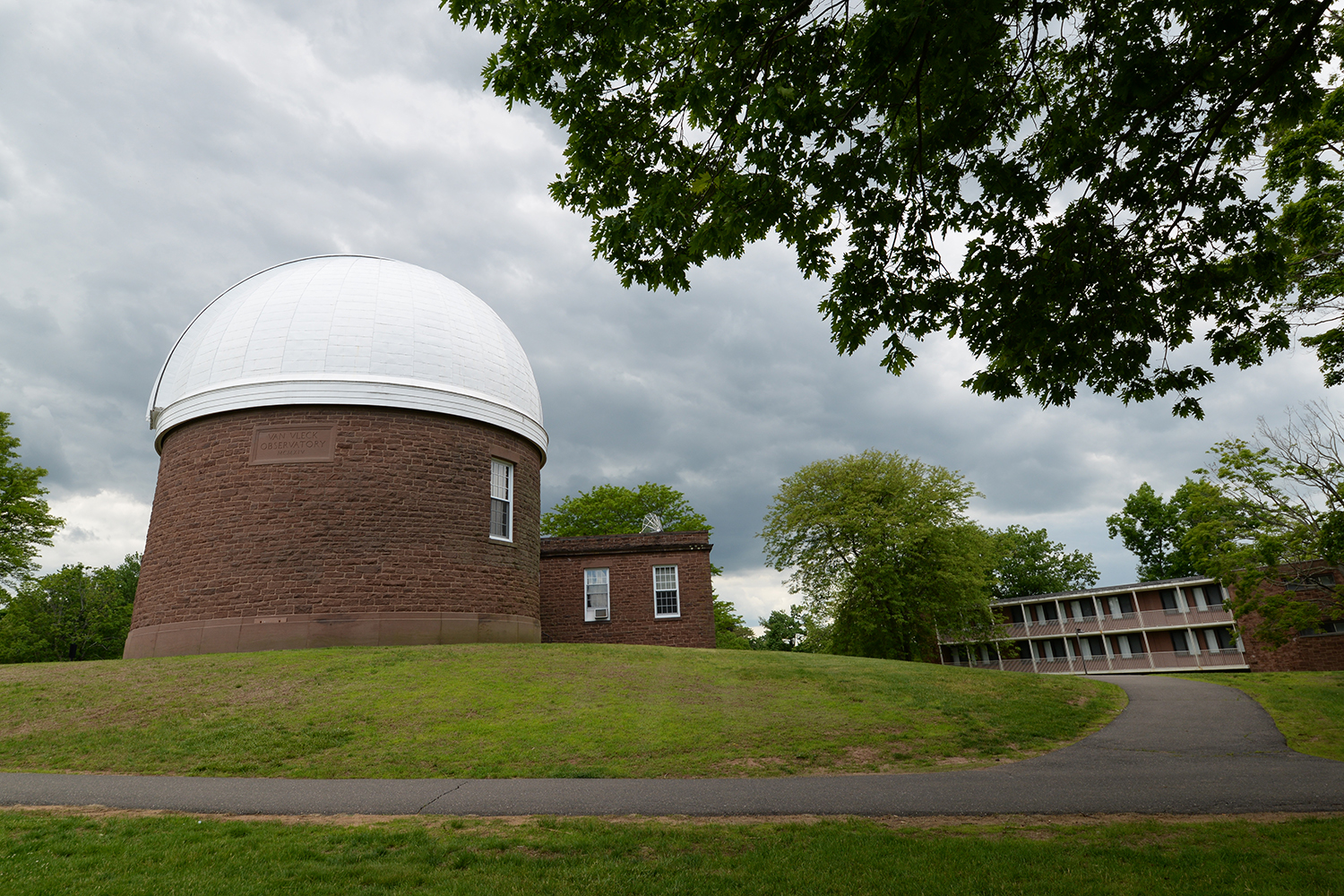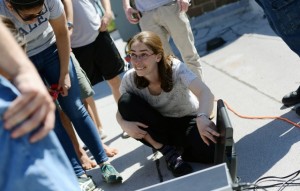Wesleyan’s “Observatory Nights” Featured on Local Media

The Hartford Courant and WNPR both featured stories on Wesleyan’s “observatory nights,” which began this month. Every Wednesday night at 8 p.m. during the Spring semester, the Van Vleck Observatory will open its doors to the public, rain or shine, for viewing of the sky through telescopes and presentations on the latest space-related research.
According to the Courant, Research Assistant Professor of Astronomy Roy Kilgard said the department is seeking to supplement its outreach to groups already interested and involved in science with new sessions for people who may not have a high level of knowledge about space and astronomy.
“We’re really trying to grow it beyond looking through the telescopes,” Kilgard said.

Assistant Professor of Astronomy Meredith Hughes told WNPR:
“It’s actually pretty amazing that in the middle of a city, we can see a ton of beautiful things in the night sky.”
“For example, tonight,” Hughes said, “our list of cool objects to observe — if the weather is good enough — includes Jupiter; the Orion nebula, which is a million years old — which sounds old, but is actually very young in stellar terms — a stellar nursery where stars are being born; we have the Beehive Cluster, which is a cluster of stars that is relatively recently formed; and the Andromeda Galaxy, the closest neighbor galaxy to our own.”
Beginning Feb. 20, there will also be special “Kids’ Nights” on the first and third Friday of every month where topics will be tailored for children, according to the Courant. Graduate student Jesse Shanahan will run the kids program, which will cover topics including the life cycle of a star, black holes, comets and an introduction to our solar system.

